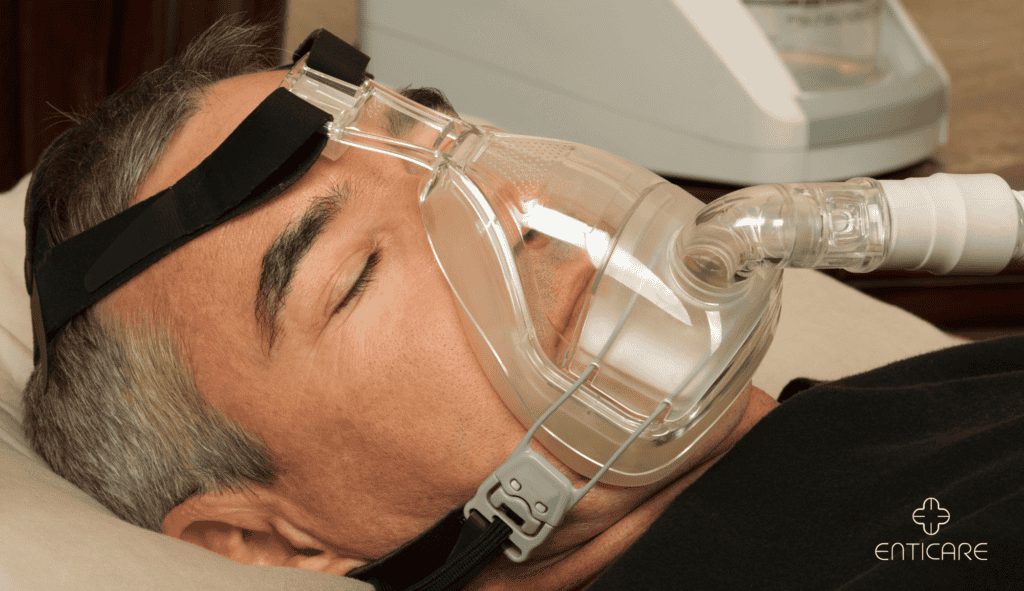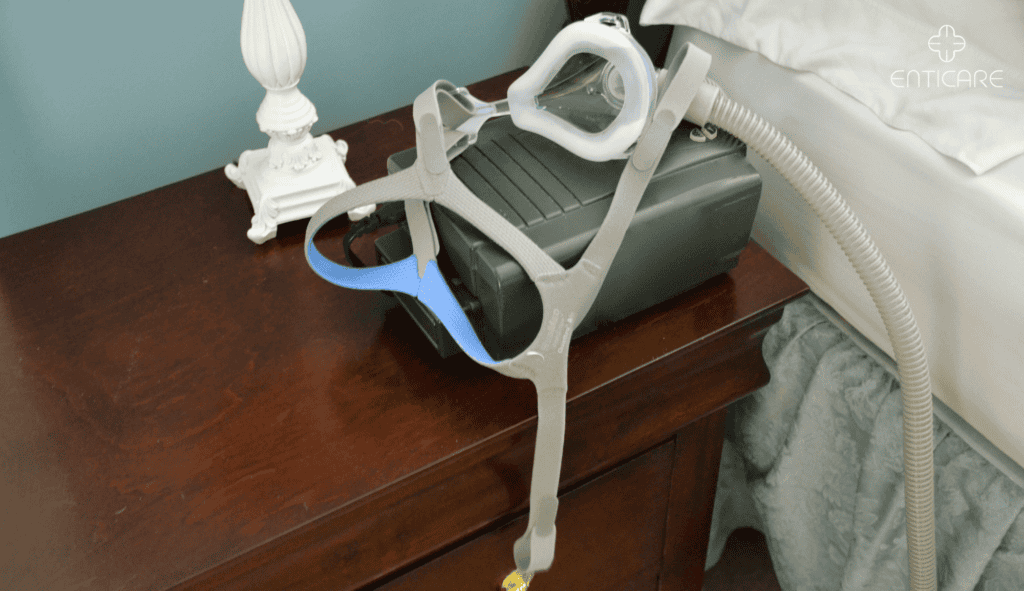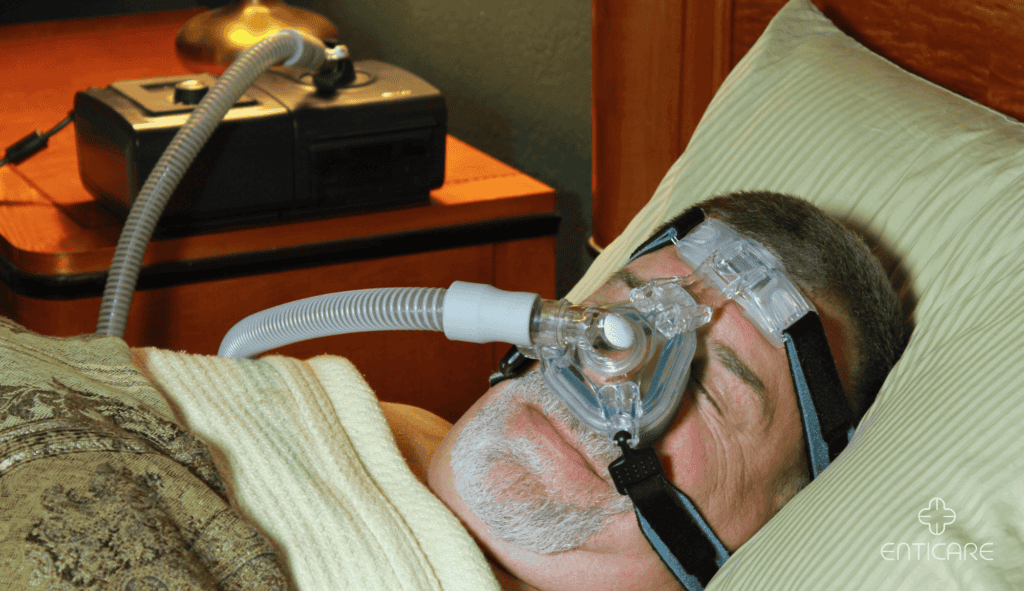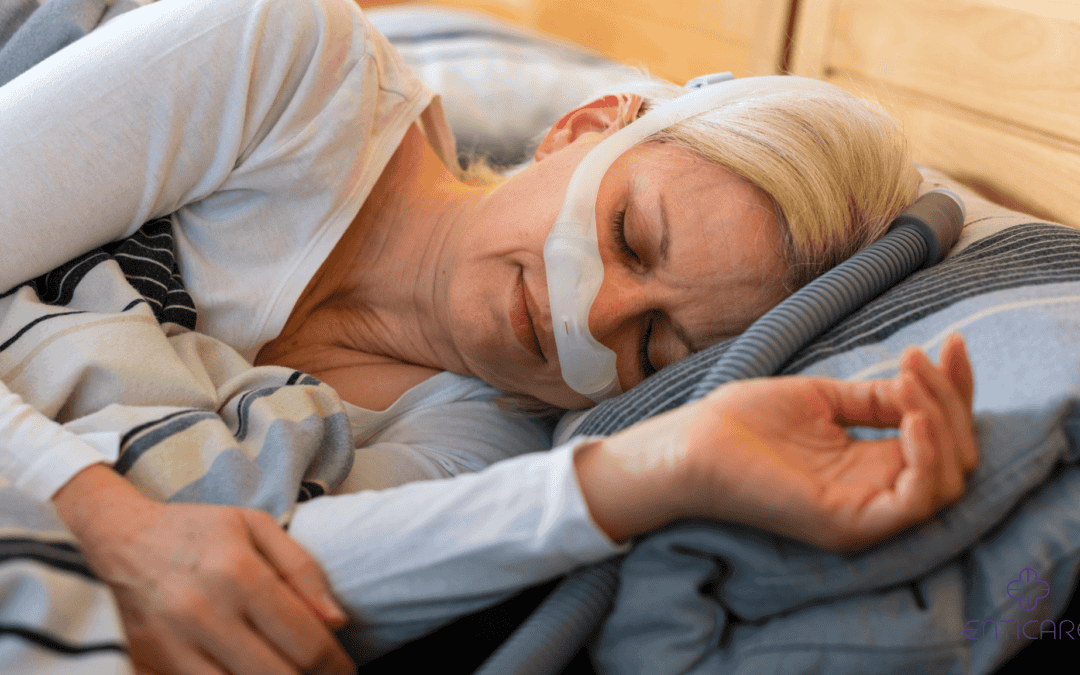Continuous Positive Airway Pressure (CPAP) treatment offers relief and restful sleep for many with sleep apnea. However, people often wonder if they’ll need CPAP indefinitely or if there’s a point when they can stop. Here, we’ll explore signs and scenarios for safely discontinuing CPAP.

Understanding CPAP Therapy: What Does It Do?
To understand if and when you can stop using CPAP, you must know its role in managing sleep apnea.
CPAP Basics
CPAP machines prevent airway collapse by gently pushing air through a mask, keeping your airway open during sleep. This constant airflow supports steady breathing patterns, preventing frequent awakenings and oxygen drops.
Why CPAP is Effective
CPAP remains the gold standard for sleep apnea, mainly due to its effectiveness in reducing nighttime interruptions and preventing severe complications. Long-term use of CPAP equipment reduces risks associated with untreated sleep apnea, including cardiovascular problems. Moreover, CPAP therapy can improve sleep quality by reducing sleep disruptions and increasing REM duration.
CPAP’s Impact on Daily Life
Regular CPAP use improves overall quality of life, ensuring a good night’s sleep, reducing daytime sleepiness, improving mood, and boosting mental clarity. However, some people feel self-conscious or uncomfortable using it in the long term.
Indicators That CPAP May No Longer Be Necessary
Certain signs might indicate that it’s time to reconsider your CPAP use, but only under the guidance of a healthcare provider.
Weight Loss and Lifestyle Changes
For people with obstructive sleep apnea linked to weight, losing weight can improve or eliminate symptoms. Other lifestyle changes, like reduced alcohol consumption, quitting smoking, and regular exercise, also contribute to better breathing at night.
Surgical Treatments
Some people pursue surgical treatments, such as nasal, throat, or jaw surgeries, which can reduce or eliminate sleep apnea symptoms. After these procedures, your doctor may reassess your need for CPAP therapy.
Alternative Therapies
Newer treatments, such as oral appliances or positional therapy, have shown promising results in mild to moderate cases. If these alternatives prove effective, they might make CPAP unnecessary. These alternatives can help reverse sleep apnea by addressing its root causes.

Evaluating Symptoms: Are You Still Experiencing Sleep Apnea?
Before stopping CPAP, assessing whether your sleep apnea symptoms have subsided is crucial.
Monitor Your Sleep Quality
Use sleep-tracking apps or consult a specialist in sleep medicine to measure your sleep quality. Restless sleep, daytime fatigue, and morning headaches might indicate sleep apnea still exists.
Look for Physical Symptoms
Symptoms like snoring, choking during sleep, or frequent awakenings suggest ongoing sleep apnea. Untreated sleep apnea can lead to serious health risks, including high blood pressure. Even if you feel ready to stop CPAP, these physical signs indicate a need for continued support.
Consult Regularly with a Specialist
Regular check-ups ensure you receive accurate assessments on whether stopping CPAP is a safe choice. Sometimes, under guidance, short trials without CPAP allow for symptom monitoring without fully committing to discontinuation.
According to the National Sleep Foundation, regular check-ups are crucial for managing sleep apnea effectively.
Safe Steps for Stopping CPAP: Working with a Doctor
Stopping CPAP without guidance poses risks, but careful planning and monitoring make it possible to discontinue safely.
Conduct a Sleep Study
Doctors may recommend a follow-up sleep study to evaluate the severity of your apnea after lifestyle changes or alternative treatments. This study provides insight into whether you still need CPAP as part of your sleep apnea treatment.
Gradually Reduce Usage
Sometimes, doctors recommend a gradual reduction in CPAP use rather than stopping suddenly. Gradual reduction allows you to monitor symptoms and reintroduce CPAP if necessary.
Alternative Treatments for Continued Support
Transitioning to oral appliances, such as mandibular advancement devices, can support breathing and offer an alternative for those who do not want CPAP. Positional therapy can also help if your apnea worsens while sleeping on your back.

What to Expect After Stopping CPAP
Once you stop CPAP, monitoring your symptoms remains critical to avoid potential health impacts.
Frequent Symptom Check-Ins
After stopping CPAP, keep a close eye on your energy levels, mood, and overall health. Symptoms like daytime sleepiness or morning headaches suggest that apnea remains a concern.
Possible Return of Sleep Apnea
Sleep apnea may return even if symptoms initially improve, especially if weight or lifestyle changes don’t hold. Monitoring long-term can help you determine if stopping was compelling or if CPAP should resume for the rest of your life.
Regular Follow-Up with a Sleep Specialist
Continued care with a sleep specialist ensures you receive the most effective treatment, whether a permanent transition from CPAP or a hybrid approach.
Ready to Find a Healthier Sleep Solution?
If you’re considering stopping CPAP or exploring alternative treatments, consult an ENT specialist for expert advice. Schedule an appointment with Enticare today to discuss your options and discover a path to restful, healthy sleep!

